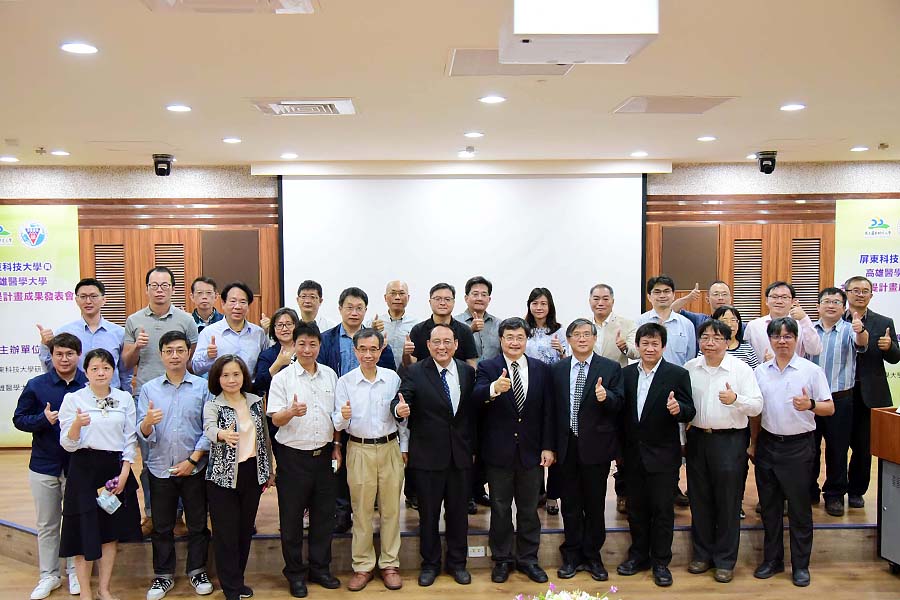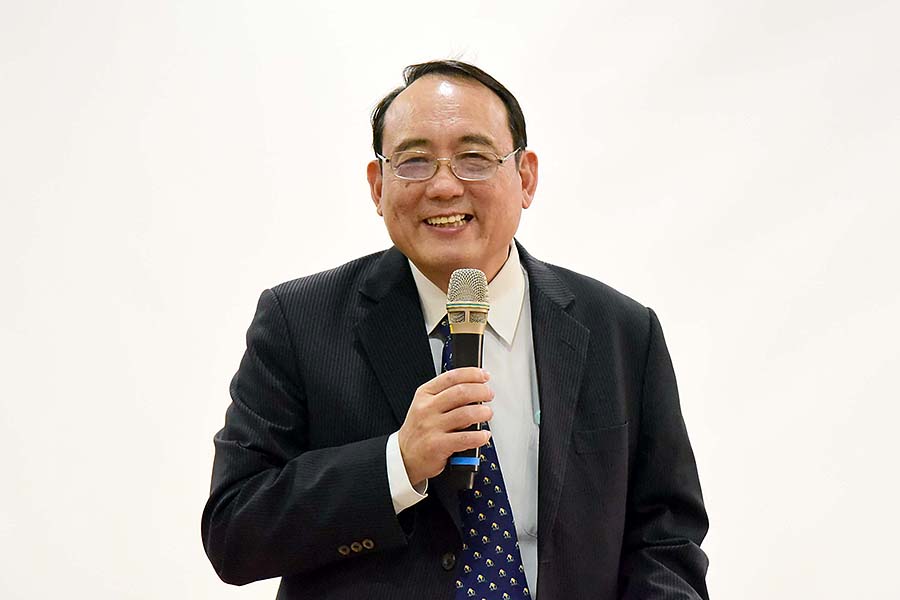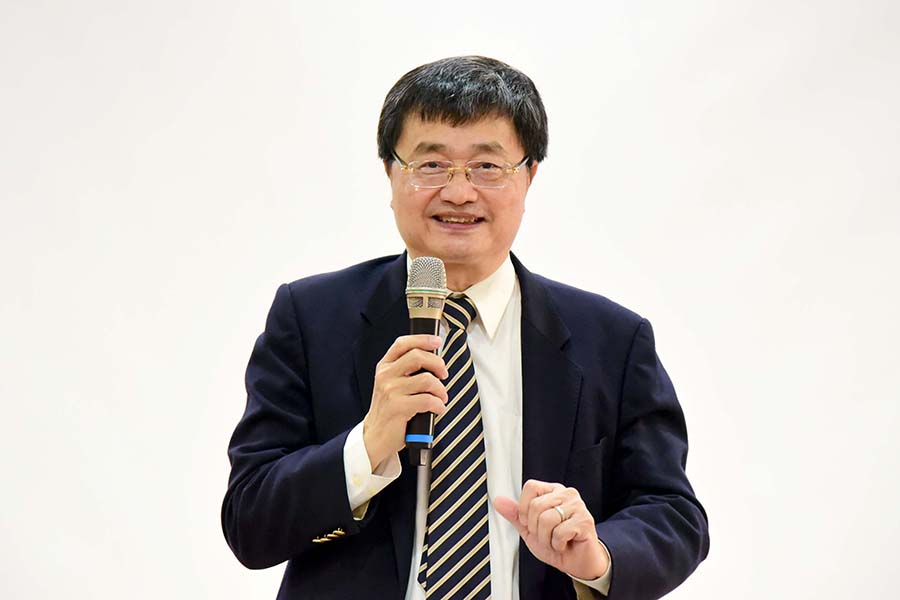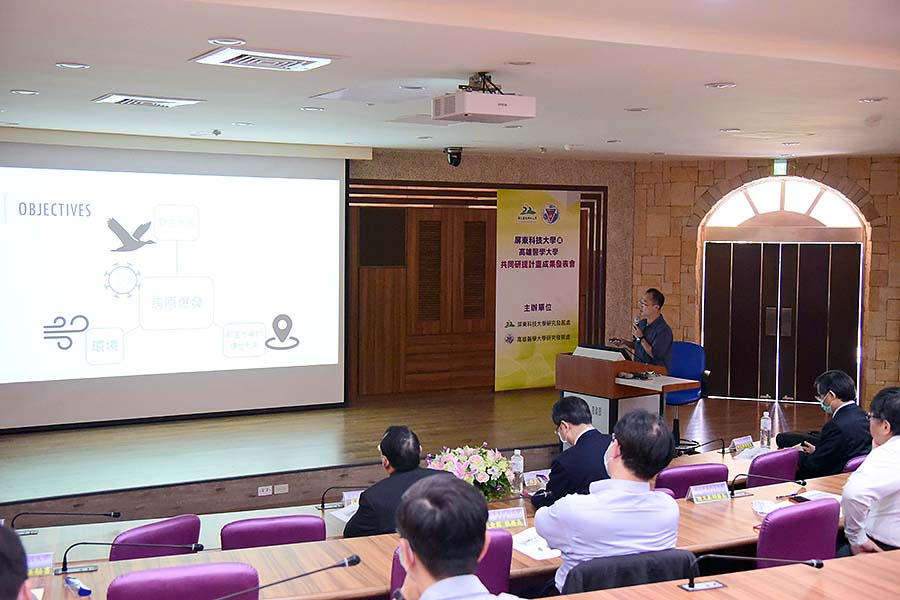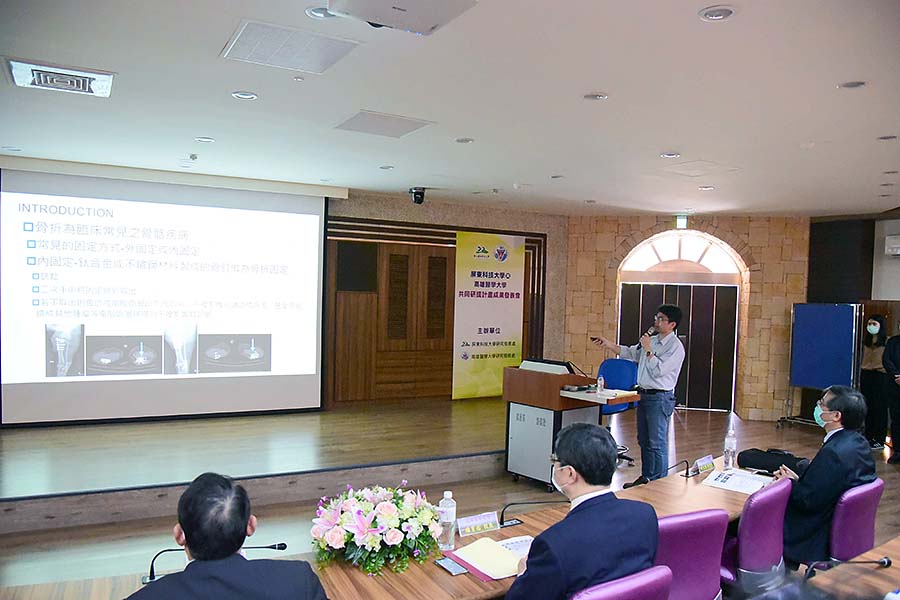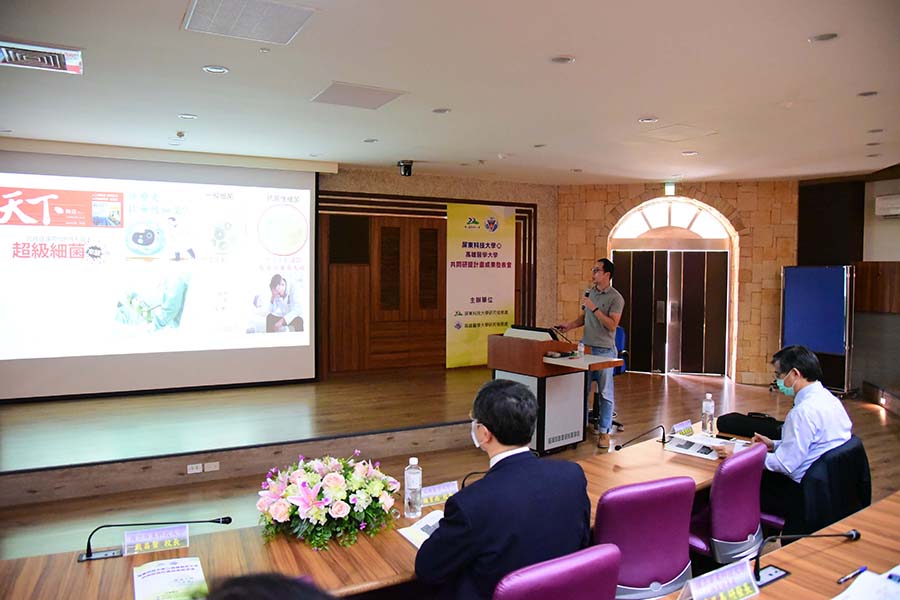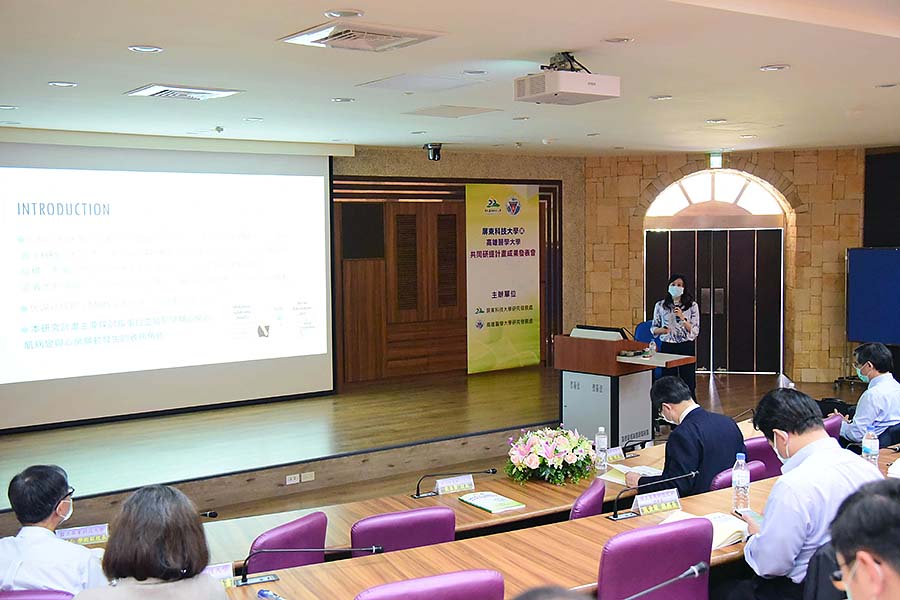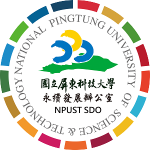National Pingtung University of Science and Technology (NPUST) and Kaohsiung Medical University (KMU) have been strategic alliance partners since 2009. A decade in, a new and very promising opportunity for cooperation has garnered a great deal of interest from their faculties.
With a framework that includes agricultural technology, medical technology, industry and humanities, the two academic institutions received a voluminous 40 applications in its first year. After the inter-university review committee completed the rigorous review, grants were provided for a total of 11 projects. On March 9th, in the lecture hall at the NPUST IH Building, the results of those projects were published.
At the event, NPUST President Chang-Hsien Tai highlighted the joint efforts, saying “the objective of this current inter-university cooperation is to integrate NPUST’s Smart agriculture technology and vaccine biotechnology with KMU’s medical resources. In addition to transforming traditional agriculture into precision agriculture, we hope to integrate a human biological database to inspire industry trends that focus on “precision health”. We hope continue to expand cooperation between our universities as we put the concept of University Social Responsibility into practice—taking advantage of both university’s strengths to create more brilliant results.”
KMU president Yuh-Jyh Jong also remarked on the joint research, stating that “along with societal aging trends throughout the world, great import has been attached to “precision health” strategies. Through the cooperation and sharing of educational resources—and through the processes of conducting interdisciplinary innovation— we will be able to increase R&D capacity of both universities.”
As a starting point, the exchange and cooperation is looking at a wide range of topics including “agriculture, forestry, fishery, and animal husbandry, production and processing, leisure sports, social work, environment and ecology, care for disadvantaged groups, placemaking, and wildlife conservation”. The researchers will also combine “precision health” with “precision medicine” as the work to jointly encourage the development of a “precision health industry”. In this way, the research and sharing are certain not only to create a win-win situation for the universities involved, but also for society as a whole.



